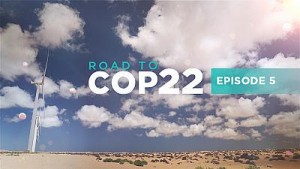Africa News
We are Tafilalet, Morocco, in the world’s largest oasis .. now threatened by climate change.
The country has three major objectives: recognising issues related to climate change, preserving oases, and developing them to a single model of resilience. “Protective factors.”
This group of several oases is located in Moroccan Sahara in the foothills of the Atlas Mountains at the cities of Erfoud and Rissani.
Morocco launched a sustainable environmental protection program that promotes local products and ecotourism as well as the conservation and development of the Oasis group.
“There is a large national sustainable development programme to preserve and promote the cultural heritage and its environment as well as create employment,” said Dr. Bachir Saoud, Adviser to the Minister of Agriculture and Maritime Fishing.
Water is very important to preserving Morocco’s oases. Various methods are used to get the precious liquid from the desert: wells, underground pipes, canals and dams.
“For centuries, we have been working on suitable methods, such as building Khatara drains, dams and dugouts, all of which are supported by the “Green Morocco“plan, with particular emphasis on the water extraction. We have introduced new water-saving techniques such as drip irrigation,” Mohamed Bousfoul, Regional Director of Agriculture in Draa, Tafilalet said.
The afforestation of the Moroccan palm groves takes place through in-vitro culture: in this laboratory many shoots are cultivated by organogenesis and embryogenesis.
“We mainly produce date palms, our production capacity is around 100,000 plants per year, mainly cultivating the sweet-tasting Medjool (Mejahul) and other national varieties (such as the Boufegouse and Nejda [Nejida])” said Dr Mounir El Bellaj, Technical Director of the Maghreb Palm Laboratory.
For the young palm trees to grow well, they must be carefully protected.
“The plants are intended for the small farmers of the Palm Grove and the Moroccan oasis to help them improve their income and better manage the effects of climate change, such as droughts,” Abderahim Hilali from the Maghreb Palm Lab said.








